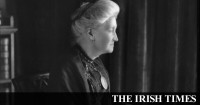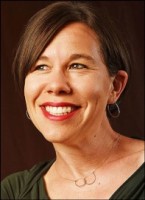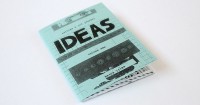
PEOPLE TO PEOPLE, Elizabeth Ann Atkins on coaching new writers through their first book
youtube.com – Sunday October 31, 2021

Elizabeth Ann Atkins of Two Sisters Writing and Publishing is known as "America's Book Coach." With dozens of titles to her own credit, she says she can help you do the same.
Want to Improve Your Writing? Get 100 Years Of Writing Experience In 20 Minutes
youtube.com – Tuesday October 26, 2021
Want to improve your writing? Get ready to take notes because in this MarieTV, seven famous authors share their best writing advice.

How the subscription newsletter service Substack is changing the writing game
theglobeandmail.com – Sunday October 24, 2021

One of the great surprises of the COVID-19 era is that some of the most talked-about journalism on the internet is being done through a subscription newsletter service. And, more surprising still, this business model is actually proving to be profitable. I’m speaking, of course, about Substack, a platform that’s gained prominence during the pandemic as a haven for heterodox journalists exiting the mainstream media.
The platform is now home to investigative reporters such as Matt Taibbi, formerly of Rolling Stone, and Glenn Greenwald, a founder of The Intercept; digital media heavyweights such as Vox’s Matt Yglesias; and former magazine columnists such as New York’s Andrew Sullivan. All have concerns about the direction the media is headed, and all now regularly publish pieces that it would be hard to imagine reading at their former outlets. As such, Substack has become something of a referendum on contemporary journalism and, due to the controversy surrounding many of its personalities, a contested development.

Pulp friction: Irish women’s place in genre writing should be rescued from ignominy
irishtimes.com – Sunday October 24, 2021

In 1911 a woman named Mary Helena Fortune died in Melbourne, Australia, her death largely unremarked. By then she was an alcoholic, nearly blind and boasted a career criminal for a surviving son, the exotically named Eastbourne Vaudrey Fortune – better known, unsurprisingly, as George. She subsisted on a small pension from the Australian Journal, and was so poor when she died that she was buried in a grave intended for another.
Only in the 1950s was Fortune connected to the pseudonym WW, or “Waif Wander”, under which she wrote hundreds of crime stories, including a pioneering series for the Journal called The Detective’s Album, detailing the cases of an Australian lawman named Mark Sinclair. So convincingly did Fortune inhabit these first-person accounts that readers were convinced they were the work of a serving or recently retired officer of the law. The Journal did nothing to disabuse its subscribers of this notion, probably figuring the myth would sell more copies than the truth, which was that the tales were being written by a clever, gifted woman born in Belfast in 1833, one who had arrived in Australia via Canada in 1855 with her father and infant son, leaving a bad marriage behind her.

Seven Benefits of a Writing Partner
publishersweekly.com – Sunday October 10, 2021

I used to think I could go it alone as a writer.
As a matter of fact, I preferred it that way. I wanted to rely on myself alone, not bother anyone, not need anyone to get involved. I was doing fine with this philosophy for years. I wrote and edited and rewrote all on my own, bumping along in a quiet, solitary manner, sending stories and poems to literary magazines, receiving rejections, jumping up and down with my beloved cat whenever an editor wrote me a note or I won a contest.
“What does this mean? Are you famous yet?” my husband would sometimes tease.
He isn’t a writer, so I forgave him. But the fact remained: I wasn’t taking any sizable steps forward in my writing career.

What It Would Take to Disrupt the Publishing Industry
publishersweekly.com – Sunday October 10, 2021

Anyone who follows publishing knows that it loves to celebrate a disruptor. Disruptor is a label thrown at anything new, and publishing is unusually easy to disrupt because it is particularly slow to change.
Back when I started She Writes Press in 2012, I was called a disruptor. I confess, I liked it. But it wasn’t exactly accurate, and whenever I spoke at conferences about what we were doing—which was growing a reputable hybrid model based on the systems of traditional publishing—I let audiences know that legacy publishers had been cutting hybrid deals for years, which was an open secret. If I was doing anything disruptive, it was encouraging the authors we published to be proud of publishing nontraditionally. As I mentioned, it doesn’t take much to be considered a disruptor in this space.

Where Have All the Midsize Book Publishers Gone?
publishersweekly.com – Sunday October 3, 2021

When Hachette Book Group acquired Workman Publishing, HBG CEO Michael Pietsch observed that Workman was one of the biggest, if not the biggest, remaining independent trade publishers left in the U.S. Based on available data, a case could indeed be made that Workman was the largest of its kind. Which has raised a question in publishing circles: why are there so few independent publishers of size? There is a dearth of what can be called midsize publishers that fall between the Big Five and the many independent publishers with sales of $20 million or less.
The Houghton Mifflin Harcourt trade division, with 2020 sales of $192 million, was what could have been considered a mini-major before it was acquired by HarperCollins. The Scholastic trade group, with sales of $355 million in the fiscal year ended May 31, is a major player in the children’s trade market, but as part of a $1.3 billion publisher, it is clearly not independent. Other trade publishers that could be considered midsize that are also part of larger companies are Disney’s publishing division and Abrams, which is owned by the French company La Martinière Groupe, which was itself acquired by Media Participations.

Ten Things Nobody Tells You About the Publishing Industry
publishersweekly.com – Sunday September 26, 2021

There’s more to authoring than conquering the blank page. Dozens of unique quirks of industry factor into the experience of a creative. If you’re an aspiring writer with traditional publishing in mind, pay attention. Here’s what to expect from author life:

What makes a good writer? Human stories, active voice and an open mind
journalism.co.uk – Thursday September 16, 2021

Many journalists find their way to the industry because of their love of writing. We put together words and sentences to tell stories that matter, always with one eye on the word count and deadlines. Most of the time, we enjoy the process of writing as much as seeing the final piece of work getting published.
But what is good writing? Is it the ability of a perspicacious reporter to punctiliously select supreme words, refining his or her locution to the point of perfection? Or is it the skill of telling a story clearly, concisely and accurately?
You know the answer. But sometimes journalists’ passion for the written word can be their worst enemy and we end up stuffing our stories with fluff and gibberish.

How to Make a Zine: A Guide to Self-Publishing Your Own Miniature Magazine
mymodernmet.com – Wednesday September 8, 2021

Even if you’ve never heard of a zine, chances are you’ve probably had one in your hands at some point without even knowing. These handmade booklets provide a way for people to share their art, writing, musings, and give a platform to underrepresented and marginalized voices. If you’ve got something to say, why not use a zine to express yourself? Read on to learn about the history of the zine, and how you can make one yourself.
Get the free newsletter | Submit a news item or article | Get Writers' News for your website





